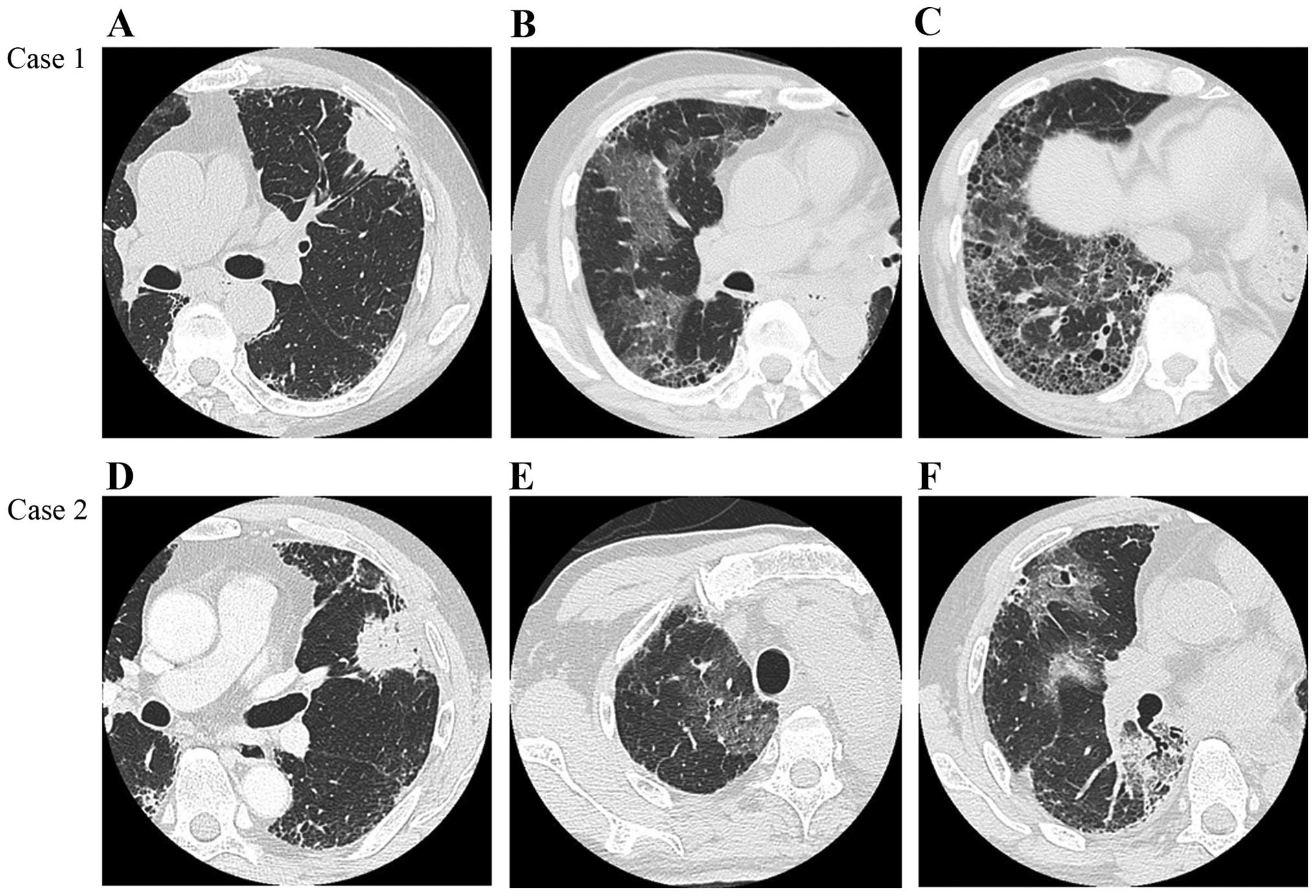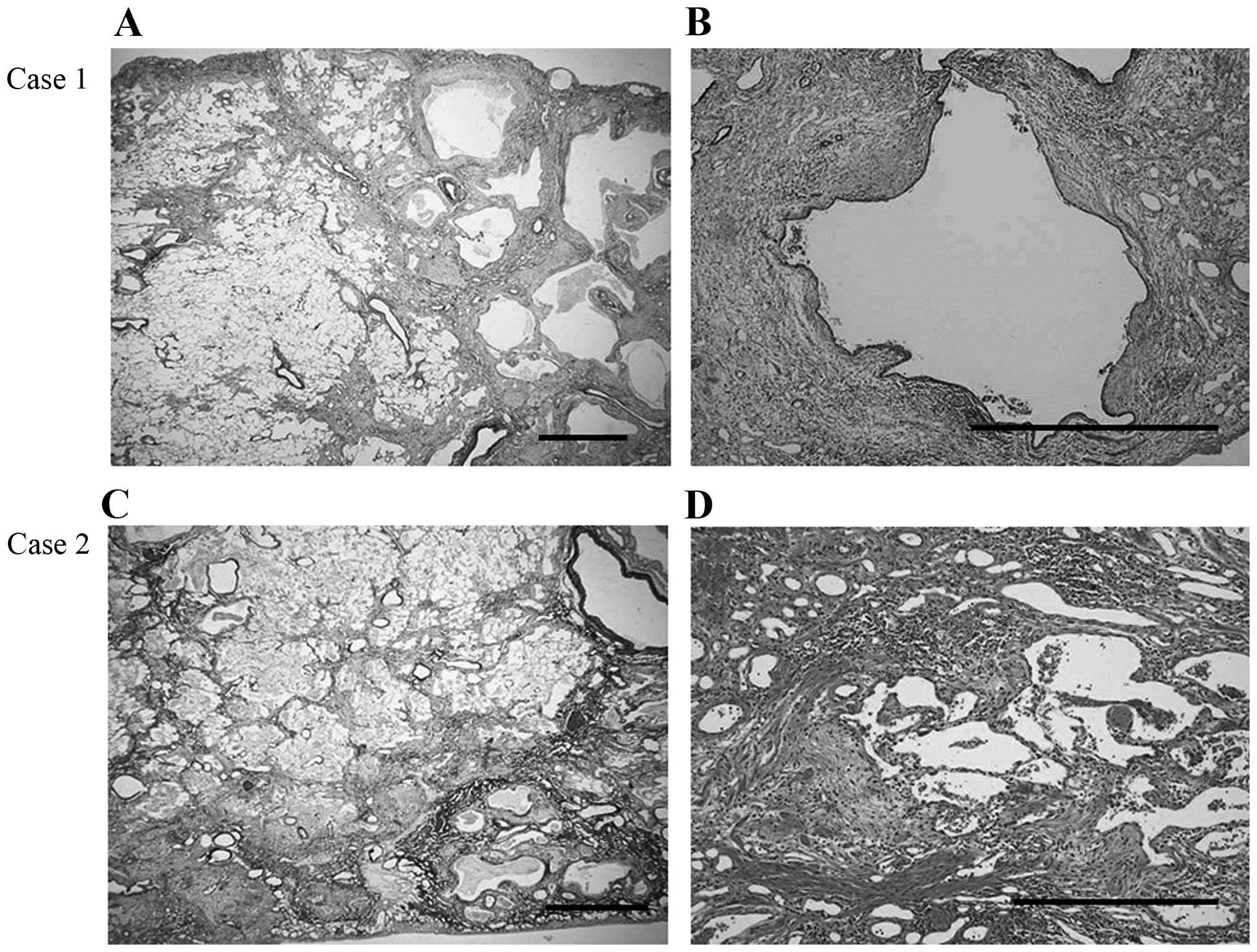Spandidos Publications style
Sugino K, Nakamura Y, Muramatsu Y, Hata Y, Shibuya K and Homma S: Analysis of blood neutrophil elastase, glutathione levels and pathological findings in postoperative acute exacerbation of idiopathic pulmonary fibrosis associated with lung cancer: Two case reports. Mol Clin Oncol 5: 402-406, 2016.
APA
Sugino, K., Nakamura, Y., Muramatsu, Y., Hata, Y., Shibuya, K., & Homma, S. (2016). Analysis of blood neutrophil elastase, glutathione levels and pathological findings in postoperative acute exacerbation of idiopathic pulmonary fibrosis associated with lung cancer: Two case reports. Molecular and Clinical Oncology, 5, 402-406. https://doi.org/10.3892/mco.2016.993
MLA
Sugino, K., Nakamura, Y., Muramatsu, Y., Hata, Y., Shibuya, K., Homma, S."Analysis of blood neutrophil elastase, glutathione levels and pathological findings in postoperative acute exacerbation of idiopathic pulmonary fibrosis associated with lung cancer: Two case reports". Molecular and Clinical Oncology 5.4 (2016): 402-406.
Chicago
Sugino, K., Nakamura, Y., Muramatsu, Y., Hata, Y., Shibuya, K., Homma, S."Analysis of blood neutrophil elastase, glutathione levels and pathological findings in postoperative acute exacerbation of idiopathic pulmonary fibrosis associated with lung cancer: Two case reports". Molecular and Clinical Oncology 5, no. 4 (2016): 402-406. https://doi.org/10.3892/mco.2016.993

















